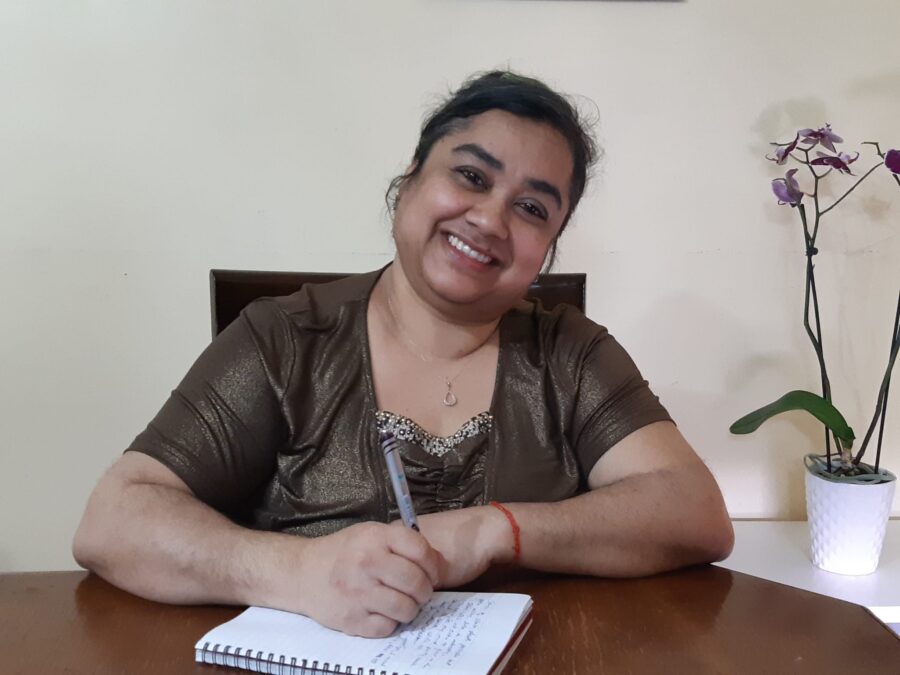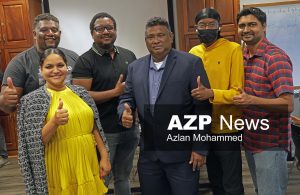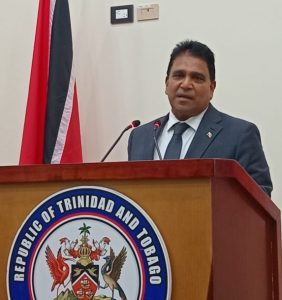‘Without cultural identity, people lose their sense of worth’ – Lana Santana
BySue-Ann Wayow
OUT of Piparo and into Alberta, Canada, is a woman who is passionate about multiculturalism.
Lana Santana, wanting to make a change in a foreign land that has become her second home, launched the Fort Saskatchewan Multicultural Association (FSMA), a non-profit organisation with focus on educating people about different cultures and ethnic groups some ten years ago.
Last week, the organisation celebrated its 11th year in existence.
The former journalist from Trinidad who also lived in Point Fortin after getting married, has received several awards in Canada for the pioneering work that is now being requested by other towns in Alberta – where she migrated to in 2007.
The inspiration to have such an association came from her daughter when she was seven-years-old.
Santana in a virtual interview with AZP News said her daughter who was fasting for Divali at the time, was given the opportunity by her class teacher to share with her classmates about Divali and her faiths and belief.
Conducting her research and sourcing photos of the Hindu deities such as Mother Lakshmi, Lord Hanuman and Lord Ganesh, the child proudly presented them to her class only to be laughed at by the other children.
Santana said, “She came home and said ‘Mom, I am never doing that again because the kids laughed’ and I said ‘No, now is the time to do it more.’ I said you got to teach them more and the idea came up that I should start a multicultural association.”
During that period, she would be doing her own research and educating herself on how to bring forth an organisation that would be impactful, pulling from her own experience as an immigrant where everything had to be learnt.
She said, “If I was going to do something, it was going to be something that would have an impact and a very good impact on the community because I was seeing where they needed to learn.”
Many of the people Santana met at the beginning of her stay in Canada did not even know that Trinidad and Tobago existed and if they were aware of the country, they were unaware of the brilliance of its citizens and therefore, there was even more compellation to start such an organisation.
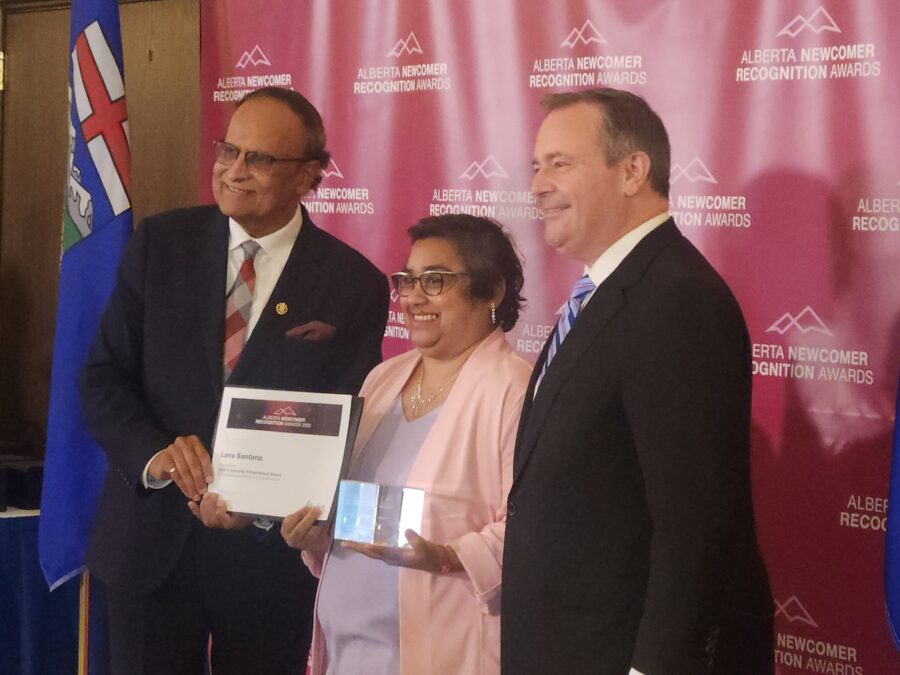
Santana likened her multicultural educational programme to a political manifesto which outlines how she expects to run her programme.
She started by doing indigenous education in 2013 in schools, as there is a part in the curriculum where pupils have to learn about first nation culture and tradition and history in Alberta.
Elders and storekeepers from the different indigenous communities to share their stories and customs and how to engage in practical fun activities with the children were sourced.
Now, there is a programme in place for every historical month including Black History Month in February and Asian History Month in May.
“We touch on the different cultures that do not have their various celebrations or commemorations,” Santana said.
The only two religious public holidays in Canada are Christmas and Easter.
She told AZP News that for the first time in the community this year, there was an Eid celebration hosted by her organisation.
“It was really well received and appreciated by the Muslim community. The reason for doing that is to help dispel the Islam phobia that is there,” Santana said.
With a government grant of $11,000, part of the Eid programme also included teaching about it in schools.
To date, FSMA has programmes in 62 schools, a board of 11 directors, 25 volunteers and hires between 50 to 60 culturally diverse Albertans.
Santana’s four children are also part of the association.
The government, federal, provincial and municipal and businesses are supportive financially.
“The goal of the Government recognising these months (Black History, Asian, Indigenous) is to celebrate the people who contributed towards the development of Canada. Despite all of the challenges of discrimination they face, they were able to persevere through and make a name for themselves in the different disciplines whether it is the politics, education, sports, etc,” Santana said.
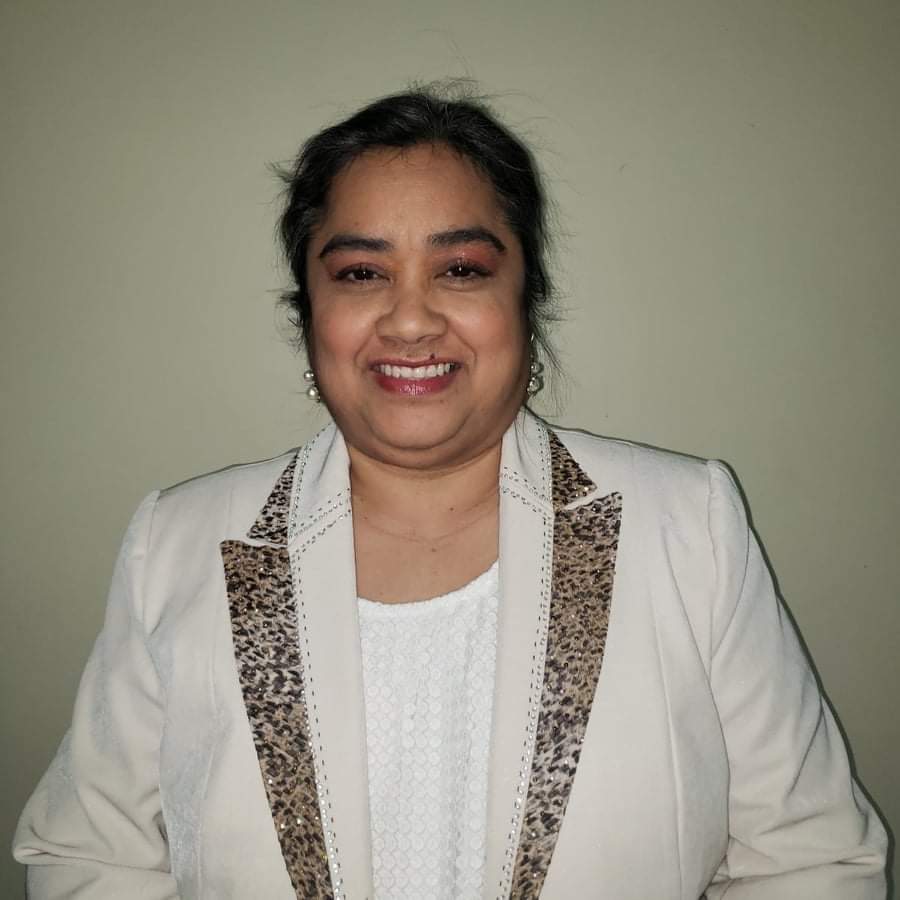
She said, “I try to tie in the culture in it because without cultural identity, people lose their sense of worth so it is necessary for us to have that cultural identity.”
In sharing Caribbean culture with Canadian citizens, Santana said the teachers were grateful to know about the steelpan’s history, Carnival activities and storytelling which was a strong component of culture.
Education generally, was also especially important for migrant children.
Santana explained with children or adults with English as a Second Language, her group along with another association assists them with learning English with financial aid.
FSMA focuses on the children and the other group assists the adults.
She said it has a tremendous positive effect on the children, especially through the skill of reading.
“That is something that is vital. English as a second language is really critical and there should be something that is put in place for that,” Santana said.
Banks, corporations and associations all have grants for school and community building.
She said, “You can’t put the whole weight on the government too right.”
Do not deny children and education
No child, especially migrants
Santana told AZP News, “Children should not be denied a right to education. They are not there because they want to, they are there because the family chose to move for whatever reason, so they should not have any consequence because of that.”
She said, “Here, they must come through the legal system. We have children who have zero English and in a few months, they are talking English because they are like sponges.”
The more they are exposed to English, the more they will learn.
The school environment also provided a sense of security, belonging and worth for the migrant child, Santana said.
She suggested that support systems be put in place whether governmental or otherwise to assist such children.
Santana noted, “Sometimes not being in an institution with the kids, that could link to delinquency.”
“Every little thing contributes to a stable community, even Crime Watch here, is all coming together to ensure that your community is safe and there is a sense of care,” she added.
Santana said, “That is all people want. They want to feel a sense of safety wherever they go because I guess that’s why they are leaving.”
With emphasis on children and youth, she said, “How they grow now, that would dictate how our community would look like in the next 20 years.”
Santana said, “To have peace and harmony, you have to be educated.”
And in her other works, she is also pursuing a novel and a poetry book with the goal of the poetry book being launched in Trinidad soon.
![]()


